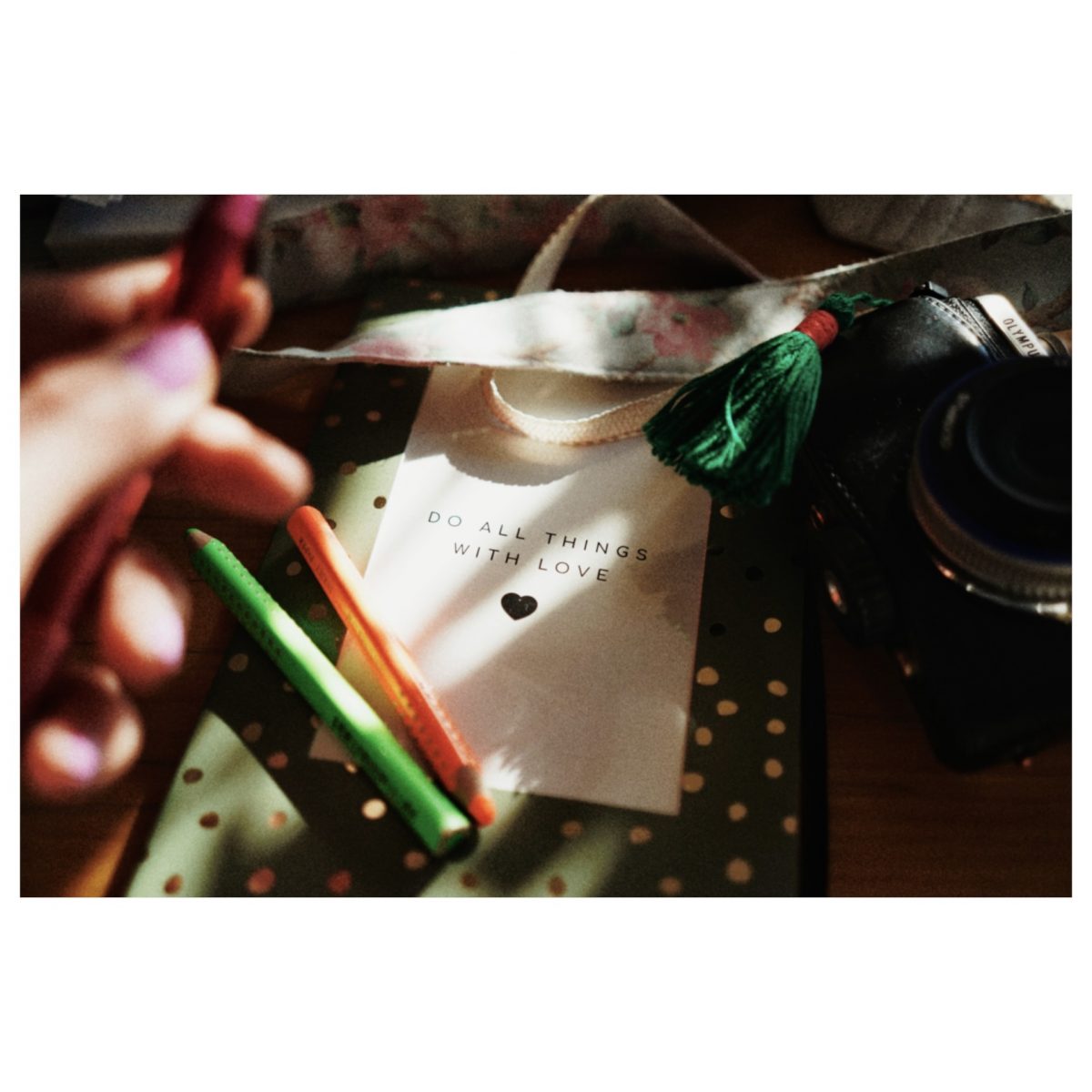
Do you have a lot of „Should Dos” in your head? I often have, and I need to get rid of them. When I constantly think I should do this and that, I cannot concentrate on what I`m doing at the moment, let alone enjoy it. These Should Dos make me feel overwhelmed, stressed, anxious and moody. “Do all things with love”, advises the Bible (in 1 Corinthians 16,14, in case you wanna look it up). But how can I do things with love when feeling stressed and overwhelmed?
Should Dos also rob my energy and joy and make me less or even non-productive: When there are too many Should Dos floating in my head, I get literally paralyzed and don`t get anything done at all. Thus, they suffocate any creativity and aren`t serving me at all.
This has been one of my biggest challenges in being self-employed. When I was an employee, I used to go to work, knowing I am meant to be there, peacefully doing my tasks for the day, knowing what I had to do. As a self-employed creative, time management has become less straightforward. Instead, unorganized Should Dos have become more of an issue.
Appointments for Peace of Mind
There`s a LinkedIn Learning Course on Time Management by Dave Crenshaw where he explains how to get rid of the Should Dos: Gather them all in one To-Do list, and once a day, give them appointments in your calendar. Once a task has an appointment you can cross it off the list. This way these Should Dos are kind of “done”, out of your head and in your calendar.
Here`s an example: I really should take my passport picture. I keep having that on my mind for days, even weeks now – have I done it? No. Because it was just a Should Do in my head, along with 20 others, and not an appointment in my calendar. To actually get it done I need to schedule it.
Plan generously
When planning, be generous: Personally I have found that when I think something will take me one hour, it will usually take me two. So I need to schedule double the time of what I would estimate for any task. Otherwise, I end up in a hurry and stressed – and the whole point of planning is to get rid of stress.
Also, it`s important to schedule tasks not too close to their deadline. Life happens, and sometimes you need an extra pause because an event has thrown you off your path. We are humans and not machines. While we generally should commit to our schedule (otherwise it won`t be much help), we still can ask ourselves: What would serve me now in this situation? What would do me good? Maybe it`s smarter to reschedule something to free space for a much-needed walk or a bit of just hanging out. Be open to rescheduling when life throws unexpected challenges at you. The goal of making appointments for your Should-Dos is peace of mind. Not perfection or working things off like a robot not listening to your needs in a given situation.

Prioritize radically
If there are too many Should-Dos that need to be scheduled so they just don`t fit in our calendar, we need to prioritize radically. What is truly important, meaning what will still matter in one or two years? What is so urgent that it must be done to avoid serious consequences? These things are to be scheduled in the calendar. Everything that is not so important goes to the “Maybe List”. This way, they are still recorded and therefore out of our heads. But we don`t NEED to do them anytime soon (maybe never).
Before a deadline
Occasionally, I`ve got a lot of tasks leading up to a deadline and I`m having a hard time giving them a fixed appointment. It has then helped me to write those Should-Dos on a post-it each. Then I pin or stick them on a wall, table, cardboard, or styrofoam board. I divide the number of tasks by the number of workdays until my deadline. So if I got two weeks for 17 tasks, I would wanna divide those 17 tasks by the ten workdays, that`s 1,7. That means I wanna bin on average two tasks a day. However, when working with the post-it technique, I do need to leave some leeway in my calendar though, and I need to be very mindful to not be “overbooked”.
About the author: www.business-photographer.com
